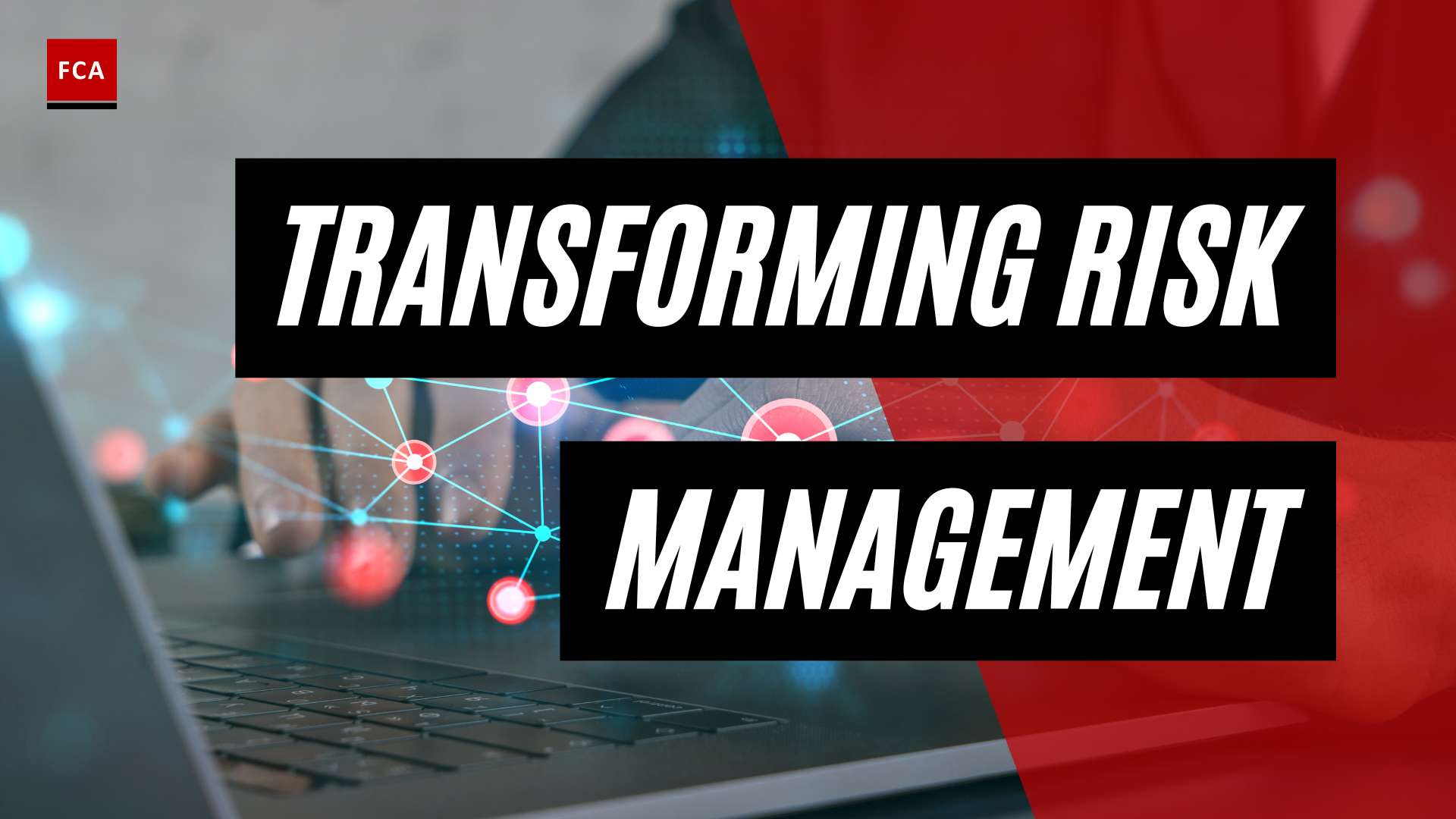AML in E-Commerce: An Overview
To ensure a secure and trustworthy e-commerce environment, it is essential to understand the significance of Anti-Money Laundering (AML) screening in the digital realm. AML refers to the set of regulations, practices, and technologies implemented to detect and prevent money laundering and other financial crimes. In the context of e-commerce, AML screening plays a vital role in maintaining compliance, protecting reputation, and building trust among all stakeholders involved.
Understanding AML in E-Commerce
AML in e-commerce involves the application of robust screening processes to identify and mitigate the risks of financial crimes, such as money laundering, terrorist financing, and fraud. These illicit activities pose significant threats to the integrity of online transactions and the overall security of the e-commerce ecosystem.
Transaction laundering, as highlighted by Checkout.com, is a common form of online money laundering. It involves three main stages: placement, layering, and integration. Criminals split large sums of illicit money into smaller amounts, blend it with legitimate cash through multiple transactions or bank accounts, and convert it through various channels to make it appear “clean.”
Importance of AML Screening in E-Commerce
Implementing robust AML screening processes in e-commerce transactions is of paramount importance. It not only helps companies adhere to regulatory requirements and prevent financial crimes but also protects their reputation, financial stability, and customer trust. By prioritizing AML screening efforts, e-commerce businesses can foster a secure and trustworthy environment for all stakeholders involved.
The global AML market is expected to reach approximately $2.63 billion by 2026, with a compound annual growth rate (CAGR) of 15.6% from 2021 to 2026, according to Tookitaki. This growth underscores the increasing focus on preventing financial crimes through AML measures in various sectors, including e-commerce.
By leveraging emerging technologies, such as artificial intelligence (AI) and machine learning, e-commerce businesses can enhance their AML screening processes. These technologies analyze vast amounts of data, identify patterns indicative of money laundering activities, and improve overall efficiency and accuracy in detecting suspicious behaviors, as mentioned by Tookitaki. AML software solutions provided by industry leaders, like Tookitaki, offer predictive analytics platforms that optimize AML screening processes and mitigate risks associated with financial crimes.
In conclusion, AML screening is a critical aspect of e-commerce operations. It ensures compliance with regulations, prevents financial crimes, and safeguards the integrity of online transactions. By staying updated with changing regulations, prioritizing AML compliance efforts, and collaborating with payment service providers, e-commerce businesses can effectively combat money laundering and foster a secure environment for e-commerce transactions.
Emerging Trends in AML for E-Commerce
As e-commerce continues to thrive, it is essential to stay vigilant against emerging trends in anti-money laundering (AML) practices. Two prominent trends impacting AML in the e-commerce industry are the rise of transaction laundering and the impact of cybercrime.
The Rise of Transaction Laundering
Transaction laundering is the most common type of online money laundering and occurs in three main forms: placement, layering, and integration (Checkout.com Blog). In this process, illicit funds are disguised as legitimate transactions, making it difficult to detect and trace the origin of the funds. E-commerce platforms can unknowingly become conduits for money laundering activities, as seen in cases like ISIS using eBay for money transfers (Sumsub).
To combat transaction laundering, e-commerce businesses need to implement robust AML screening practices. By integrating effective AML transaction monitoring tools, companies can detect suspicious patterns, flag potentially fraudulent transactions, and prevent money laundering in their online platforms. This proactive approach helps safeguard businesses from legal and reputational risks.
Impact of Cybercrime on E-Commerce
Cybercrime, including money laundering, poses a significant threat to e-commerce businesses. It is estimated that cybercrime impacts businesses with up to $10 billion in revenue, particularly in sectors such as technology, media, health, and manufacturing (Checkout.com Blog). Criminals leverage advanced digital technologies, exploiting regulatory loopholes and encryption tools like virtual private networks (VPNs), to launder money and evade detection.
To counter the impact of cybercrime on e-commerce, companies must prioritize AML compliance efforts. This includes implementing robust know your customer (KYC) practices, conducting thorough customer due diligence (CDD), and adopting effective transaction monitoring measures. By leveraging advanced AML screening tools and solutions, e-commerce businesses can identify and mitigate risks associated with cybercrime, ensuring the integrity of their transactions and protecting their customers’ data.
By staying informed about emerging trends in AML for e-commerce, businesses can take proactive measures to prevent money laundering and financial crimes. Implementing strong AML screening practices, such as transaction monitoring and KYC procedures, is crucial for maintaining regulatory compliance, safeguarding the reputation of e-commerce platforms, and building trust with customers.
AML Screening for E-Commerce Transactions
To maintain compliance with Anti-Money Laundering (AML) regulations and prevent financial crimes, robust AML screening processes are essential for e-commerce transactions. By implementing effective AML screening measures, businesses can ensure the legitimacy of transactions and protect themselves from potential risks. Three key practices in AML screening for e-commerce transactions are Customer Due Diligence (CDD), Know Your Customer (KYC) practices, and Transaction Monitoring.
Customer Due Diligence (CDD) in E-Commerce
Customer Due Diligence (CDD) is a crucial aspect of AML screening in e-commerce transactions. It involves verifying the identities of customers and assessing the potential risks associated with their transactions. CDD helps businesses identify and understand their customers, detect any suspicious activities, and comply with regulatory requirements.
During the CDD process, e-commerce businesses should collect and verify customer information, such as their name, address, date of birth, and identification documents. This information is then checked against lists of sanctions, politically exposed persons (PEPs), and other high-risk individuals or entities. By conducting thorough CDD, businesses can identify and mitigate the risks of money laundering and other illicit activities.
Know Your Customer (KYC) Practices for E-Commerce
Know Your Customer (KYC) practices go hand in hand with CDD and are crucial for AML screening in e-commerce transactions. KYC involves gathering detailed information about customers and assessing their risk profiles to ensure the legitimacy of their transactions. KYC practices play a significant role in preventing identity theft, fraud, and other financial crimes.
E-commerce businesses should have robust KYC procedures in place. This includes verifying customer identities through reliable and secure methods, such as document verification and biometric authentication. KYC practices also involve ongoing monitoring of customer activities to detect any suspicious behavior or changes in transaction patterns.
By implementing effective KYC practices, e-commerce businesses can establish trust with their customers, prevent fraudulent activities, and comply with AML regulations.
Transaction Monitoring for E-Commerce
Transaction monitoring is a critical component of AML screening for e-commerce transactions. It involves the continuous monitoring and analysis of customer transactions to detect and prevent money laundering and other illicit activities. Transaction monitoring tools are crucial for identifying suspicious patterns, unusual transaction volumes, and high-risk activities.
E-commerce businesses should employ transaction monitoring systems that analyze transaction data in real-time. These systems help identify and flag potentially suspicious transactions for further investigation. Transaction monitoring tools use advanced technologies, such as artificial intelligence (AI) and machine learning, to analyze large amounts of data, reduce false positives, and improve detection accuracy.
By implementing robust transaction monitoring systems, e-commerce businesses can enhance their fraud prevention capabilities, improve regulatory compliance, and build trust with customers.
AML screening for e-commerce transactions is crucial for maintaining compliance with regulations, preventing financial crimes, and ensuring a secure and trustworthy e-commerce environment. By incorporating CDD, KYC practices, and transaction monitoring into their processes, businesses can mitigate risks, protect their reputation, and safeguard the integrity of their transactions. For more information on AML screening and its importance in e-commerce, refer to our article on AML compliance in e-commerce.
Benefits of AML Screening in E-Commerce
Implementing robust AML screening processes in e-commerce transactions brings several benefits to businesses, helping them ensure compliance, prevent financial crimes, protect their reputation, and build trust among customers. Let’s explore these benefits in detail.
Ensuring Compliance and Preventing Financial Crimes
AML screening plays a crucial role in ensuring compliance with regulations and preventing financial crimes in the e-commerce industry. By verifying the identities of customers and detecting any suspicious activities, businesses can adhere to regulatory requirements and mitigate the risk of money laundering, which is particularly high in e-commerce transactions due to the quick movement of funds and lack of face-to-face interaction (Tookitaki). Implementing effective AML screening processes helps businesses stay in line with AML regulations for online transactions, such as conducting AML due diligence and KYC checks on new customers. This not only protects businesses from potential regulatory penalties but also helps in preventing financial crimes, safeguarding the integrity of the e-commerce ecosystem.
Protecting Reputation and Building Trust
In the digital world, trust is paramount for e-commerce businesses. Robust AML screening processes help protect the reputation of businesses and build trust among customers. By actively monitoring transactions and detecting potential money laundering activities, businesses demonstrate their commitment to maintaining a secure and trustworthy e-commerce environment. This fosters customer confidence, encouraging repeat purchases and positive reviews. Moreover, by complying with AML regulations, businesses show their dedication to ethical practices, which can enhance their brand image and attract a loyal customer base. Protecting reputation and building trust are vital for the long-term success of e-commerce businesses (Tookitaki).
Leveraging Technology for Enhanced Efficiency
Technology plays a crucial role in enhancing the efficiency of AML screening in e-commerce. By leveraging advanced AML screening tools and solutions, businesses can automate and streamline their compliance processes. Technology enables the analysis of vast amounts of transactional data in real-time, allowing for the detection of suspicious patterns and anomalies that may indicate potential money laundering activities. Automated AML screening systems not only improve the accuracy of fraud detection but also reduce the risk of human error. Additionally, technology-driven solutions help businesses comply with changing AML regulations, ensuring that their screening processes remain up-to-date and effective (LinkedIn). By embracing technology, e-commerce businesses can enhance their operational efficiency, reduce costs, and focus their resources on core business activities.
In conclusion, AML screening brings significant benefits to e-commerce businesses. It ensures compliance with regulations, prevents financial crimes, protects reputation, and builds trust among customers. By leveraging technology-driven solutions, businesses can enhance their efficiency and maintain a secure and trustworthy e-commerce environment. Prioritizing AML screening is essential for e-commerce businesses to thrive in an increasingly regulated and digital landscape.
Challenges and Solutions in AML Screening for E-Commerce
Ensuring effective AML (Anti-Money Laundering) screening is crucial for e-commerce businesses to maintain compliance, protect against financial crimes, and foster trust with customers. However, traditional AML methods often present challenges that can hinder efficiency and effectiveness. Fortunately, technology plays a pivotal role in streamlining AML workflows and addressing these challenges.
Traditional Challenges of AML Methods
Traditional AML methods have long relied on manual processes, extensive paperwork, and exhaustive verification procedures, which can be time-consuming, labor-intensive, and prone to human error. These challenges include:
- Manual data handling: The manual processing and analysis of vast amounts of data can be time-consuming and resource-intensive.
- Inefficiency in identifying suspicious activities: Traditional methods may struggle to detect complex patterns and anomalies, leading to potential oversight of suspicious transactions.
- Regulatory burden: Compliance with evolving AML regulations and reporting requirements can be complex and cumbersome, posing challenges for businesses.
- Scalability issues: As transaction volumes increase, traditional methods may struggle to handle the growing workload, potentially leading to delays and operational inefficiencies.
- Human error: Manual processes are susceptible to human error, which can impact the accuracy and reliability of AML screening outcomes.
Role of Technology in Streamlining AML Workflows
Technology integration, such as AI (Artificial Intelligence), ML (Machine Learning), and RPA (Robotic Process Automation), is revolutionizing AML workflows and addressing the challenges associated with traditional methods. The role of technology in streamlining AML workflows includes:
- Improved efficiency: Technology-driven solutions automate routine tasks, reducing the need for manual intervention and freeing up resources for more critical AML activities.
- Enhanced accuracy: AI and ML algorithms can analyze vast amounts of data quickly and accurately, improving pattern detection and reducing the risk of false positives.
- Real-time transaction monitoring: Advanced transaction monitoring systems powered by technology provide real-time insights into customer behaviors and transaction patterns, enabling early detection of suspicious activities.
- Streamlined customer due diligence (CDD): Technology enables more efficient and streamlined CDD processes, facilitating faster onboarding while maintaining robust compliance standards.
- Reduced operational costs: Technology-driven AML solutions can significantly reduce operational costs associated with manual processes and resource-intensive tasks.
- Adaptability to regulatory changes: Technology allows for easier implementation of regulatory updates and changes, ensuring ongoing compliance with evolving AML regulations.
By leveraging technology in AML screening for e-commerce, businesses can enhance efficiency, accuracy, and speed while staying ahead of emerging threats in money laundering. However, it’s important to consider the challenges of implementing these solutions, such as the high cost of implementation, complexity requiring specialized knowledge and training, and the risk of false positives that may require additional investigation efforts.
As technology continues to evolve, the future of AML compliance in e-commerce lies in the continuous adaptation and integration of emerging technologies such as blockchain and predictive analytics to stay ahead of financial crimes. Financial institutions and e-commerce businesses need to stay abreast of technological advancements and evolving tactics of financial criminals to maintain robust and effective AML frameworks.
The Future of AML Compliance in E-Commerce
As the e-commerce landscape continues to evolve, so does the need for robust and effective Anti-Money Laundering (AML) compliance measures. To ensure the integrity of e-commerce transactions and stay ahead of financial crimes, businesses must leverage emerging technologies and proactively address potential risks.
Leveraging Emerging Technologies
The future of AML compliance in e-commerce lies in the integration of emerging technologies. Key advancements such as artificial intelligence (AI), machine learning (ML), blockchain, and biometrics are transforming the way financial crimes are detected and prevented. Traditional methods are no longer sufficient due to the rise of digital transactions and increasing complexity of financial crimes (LinkedIn).
By harnessing the power of technology, businesses can automate processes, analyze vast amounts of data, and detect fraudulent activities in real-time. This enhances the speed and accuracy of fraud detection while reducing the risk of human errors. AI and ML algorithms can identify patterns and anomalies to flag suspicious transactions, enabling proactive risk mitigation.
Staying Ahead of Financial Crimes
The integration of emerging technologies in AML compliance enables businesses to stay ahead of ever-evolving financial crimes. Data analytics and machine learning algorithms can continuously learn and adapt to new patterns of illicit activity, enhancing the effectiveness of AML screening. Blockchain technology provides secure and transparent financial transactions, reducing the risk of money laundering and ensuring auditability (LinkedIn).
To effectively combat financial crimes, businesses must invest in technology-driven AML solutions that leverage advanced tools and techniques. These solutions streamline customer due diligence (CDD) processes, monitor transactions in real-time, and provide deeper insights into customer behaviors and transaction patterns. By embracing emerging technologies, businesses can enhance their AML compliance frameworks and protect themselves against potential risks (FlagRight).
While technology offers significant benefits for AML compliance in e-commerce, challenges exist in implementation. These challenges include the high cost of implementation, complexity requiring specialized knowledge and resources, and the risk of false positives. Businesses must carefully assess and choose technology solutions that align with their specific needs and provide efficient and accurate detection of financial crimes (LinkedIn).
In conclusion, the future of AML compliance in e-commerce relies on embracing emerging technologies such as AI, ML, blockchain, and biometrics. By leveraging these technologies, businesses can enhance their ability to detect and prevent financial crimes, maintain compliance with regulations, and build trust with customers. Staying ahead of emerging threats and continuously adapting to technological advancements will be crucial in ensuring the integrity of e-commerce transactions and protecting businesses from potential risks.
Best Practices for AML Compliance in E-Commerce
To ensure effective Anti-Money Laundering (AML) compliance in the realm of e-commerce, organizations should adopt best practices that prioritize regulatory adherence, stay updated with changing regulations, and collaborate with reliable payment service providers.
Prioritizing AML Compliance Efforts
When it comes to AML compliance in e-commerce, organizations must prioritize their efforts. This involves establishing robust AML policies and procedures, conducting thorough Customer Due Diligence (CDD), and implementing Know Your Customer (KYC) practices. By prioritizing compliance, organizations can effectively identify and mitigate the risk of money laundering activities within their e-commerce operations.
It is essential to conduct regular risk assessments and internal audits to ensure the effectiveness of AML compliance measures. By doing so, organizations can identify any gaps or weaknesses in their processes and take appropriate actions to address them.
Staying Updated with Changing Regulations
Staying informed about changing AML regulations is crucial for e-commerce businesses. AML regulations and requirements are constantly evolving, and organizations must adapt their policies and procedures accordingly to remain compliant.
Neglecting to stay updated with changes in AML regulations can lead to non-compliance and potential legal consequences. Regularly reviewing and updating AML practices is essential to align with the latest regulations and emerging risks. Organizations should establish mechanisms to stay informed about regulatory changes, such as subscribing to industry newsletters, participating in professional forums, and engaging with regulatory authorities.
Importance of Payment Service Providers
Payment service providers play a significant role in AML compliance for e-commerce businesses. They contribute to the overall AML strategy by deploying fraud technology, maintaining comprehensive KYC infrastructures, and offering ongoing consultations with merchants to ensure business and customer protection.
Collaborating with trusted and reputable payment service providers can help e-commerce businesses strengthen their AML compliance efforts. These providers often have established AML monitoring systems and expertise in identifying suspicious activities, ensuring compliance with AML regulations, and mitigating potential risks associated with financial crimes.
By working closely with payment service providers, e-commerce businesses can leverage their expertise and technological capabilities to enhance their AML compliance procedures. This collaboration fosters a more robust and effective AML framework, enabling businesses to build trust with their customers and stakeholders.
To ensure AML compliance in e-commerce, organizations must prioritize compliance efforts, stay updated with changing regulations, and establish strong partnerships with reliable payment service providers. By adhering to these best practices, businesses can protect themselves from the consequences of non-compliance, maintain a trustworthy reputation, and contribute to the fight against financial crimes.
Consequences of AML Non-Compliance
Ensuring effective Anti-Money Laundering (AML) practices is crucial for businesses operating in the e-commerce industry. Failure to comply with AML regulations can have significant consequences, both legally and reputationally. In this section, we will discuss some common mistakes to avoid and the importance of implementing effective AML practices.
Common Mistakes to Avoid
There are several common mistakes that businesses should be aware of to avoid AML non-compliance. Some of these mistakes include:
-
Inadequate Customer Due Diligence (CDD): Failing to conduct thorough customer due diligence can lead to conducting business with high-risk individuals or entities involved in money laundering. This can result in AML non-compliance and legal consequences.
-
Failure to Report Suspicious Activities: Neglecting to report suspicious activities to the appropriate authorities is a critical mistake that can result in non-compliance. It is essential for businesses to have robust systems in place to detect and report any suspicious transactions or activities.
-
Not Screening Against Sanctions Lists and PEP Databases: Failing to screen customers and transactions against sanctions lists and politically exposed persons (PEP) databases can lead to violations of AML regulations. It is crucial for businesses to implement effective screening processes to identify and mitigate risks associated with money laundering and terrorist financing (Source).
-
Lack of Awareness and Failure to Stay Updated: Neglecting to stay updated with changes in AML regulations and failing to adjust policies and procedures accordingly can result in non-compliance. It is important for businesses to actively monitor and stay informed about regulatory updates to ensure ongoing compliance (Source).
Ensuring Effective AML Practices
To avoid AML non-compliance mistakes, organizations should prioritize AML compliance efforts and implement effective practices. Here are some key considerations:
-
Prioritize AML Compliance Efforts: AML compliance should be a top priority for businesses operating in the e-commerce industry. It is important to allocate resources, establish clear policies and procedures, and regularly assess and monitor AML risks to ensure compliance.
-
Staying Updated with Changing Regulations: AML regulations are constantly evolving. Businesses need to stay updated with changes in regulations and ensure that their policies and procedures align with the latest requirements. Regular reviews and updates are essential to maintain compliance.
-
Importance of Payment Service Providers: Collaboration with reputable payment service providers can enhance AML compliance efforts. These providers often have robust AML systems and processes in place, which can help businesses mitigate risks and ensure compliance with regulatory requirements.
Implementing effective AML practices requires a comprehensive understanding of AML regulations, ongoing training for staff, and the use of advanced AML screening tools and solutions. By prioritizing compliance efforts and staying proactive in identifying and addressing potential risks, businesses can mitigate the consequences of AML non-compliance and maintain trust and confidence in their e-commerce transactions.
To learn more about AML compliance in e-commerce and the tools and solutions available, visit our article on aml compliance in e-commerce.
AML Screening Tools and Solutions for E-Commerce
To ensure compliance and prevent financial crimes in e-commerce transactions, utilizing effective AML screening tools and solutions is paramount. Several technologies and methodologies can assist in identifying and mitigating risks associated with money laundering and fraudulent activities. Let’s explore some key components of AML screening for e-commerce transactions.
Role of AML Transaction Monitoring
Transaction monitoring tools are crucial in detecting fraudulent activities within e-commerce. By monitoring customer behavioral patterns, these tools can identify invalid transaction disputes, multiple purchases from different countries, and high-risk transactions that exceed the AML threshold. This proactive approach helps identify potential money laundering activities and enables timely intervention (Sumsub).
Leveraging AI and Machine Learning
Artificial Intelligence (AI) and Machine Learning (ML) technologies play a significant role in enhancing AML screening processes for e-commerce transactions. These technologies analyze large volumes of data, identify patterns indicative of money laundering activities, reduce false positives, and improve overall efficiency and accuracy in detecting suspicious behaviors. Through continuous learning, AI and ML algorithms adapt to evolving techniques used by money launderers, ensuring a robust defense against financial crimes.
Solutions Provided by Industry Leaders
Industry leaders in AML compliance offer comprehensive solutions tailored to the needs of e-commerce platforms. These solutions integrate advanced technologies and methodologies to streamline AML screening processes. By automating routine tasks, monitoring transactions in real-time, and leveraging data analytics, these solutions enhance pattern detection, improve efficiency, and provide deeper insights into customer behaviors and transaction patterns. Implementing such solutions enables e-commerce businesses to stay compliant, protect against financial crimes, and build trust with customers and regulatory authorities.
By leveraging AML transaction monitoring tools, AI, and ML technologies, businesses can strengthen their AML screening processes in e-commerce transactions. These tools and solutions provide real-time monitoring, pattern detection, and automation, enhancing efficiency, accuracy, and scalability while reducing manual errors and operational costs. As the future of AML compliance in e-commerce continues to evolve, integrating emerging technologies and industry-leading solutions will be crucial in staying ahead of financial crimes and maintaining a secure and trustworthy e-commerce environment for all stakeholders involved.








